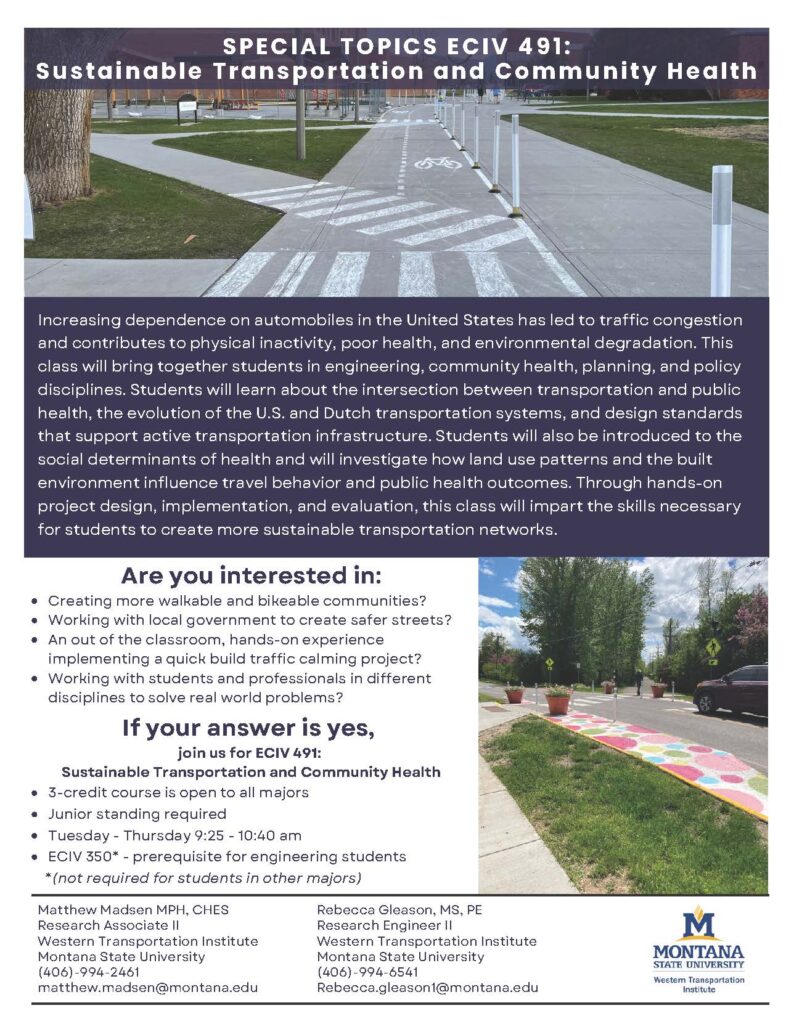 Transportation systems that prioritize motor vehicles have been linked to poor air quality and negative health outcomes such as asthma, may endanger walkers and cyclists, and disproportionately shift the negative effects onto minority and low-income communities. As a new generation of transportation engineers, planners, and policymakers join the workforce, it is important that they understand and have the skills to address the relationship between transportation and public health.
Transportation systems that prioritize motor vehicles have been linked to poor air quality and negative health outcomes such as asthma, may endanger walkers and cyclists, and disproportionately shift the negative effects onto minority and low-income communities. As a new generation of transportation engineers, planners, and policymakers join the workforce, it is important that they understand and have the skills to address the relationship between transportation and public health.
WTI researchers Rebecca Gleason and Matthew Madsen have partnered with the MSU College of Engineering to teach ECIV 491: Sustainable Transportation and Community Health. The 3-credit spring semester course is for students with Junior standing or above who are studying engineering, community health, planning, or a policy discipline. “Cities and towns are not built within silos by only engineers,” said Madsen. “For them to be sustainable and healthy, they need to be planned and developed by many different professionals. This class will give engineers and students in other disciplines the chance to learn from each other.”
Sustainable Transportation and Community Health is designed to provide students with a broad perspective on transportation design by exploring the evolution of both the U.S. and Dutch transportation systems, their divergence, and the design standards that support active infrastructure. “The Netherlands used to be much more car-dependent,” Gleason noted, “but due to a concerted effort starting in the 1970s they have become a model for a more people-focused transportation network. However, the U.S. fully embraced the private automobile, especially after World War II, and while there are some places around the country that are more bicycle, pedestrian, and transit-friendly, they are now the exception.”
The course will also introduce students to the policies and tools used to incorporate health into transportation planning, as well as provide hands-on experience to plan, implement, and evaluate a quick-build traffic-calming project. “The course goal,” remarked Madsen, “is to demonstrate the need for a balanced transportation system that incorporates health and focuses on equity in relation to all users, especially the more vulnerable ones.”
Registration for ECIV 491: Sustainable Transportation and Community Health is now open for spring 2023. The class will be held Tuesdays and Thursdays from 9:2am5 to10:40am. For more course information please contact Rebecca Gleason or Matthew Madsen.
